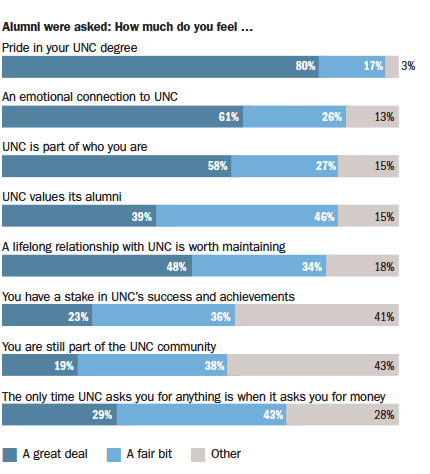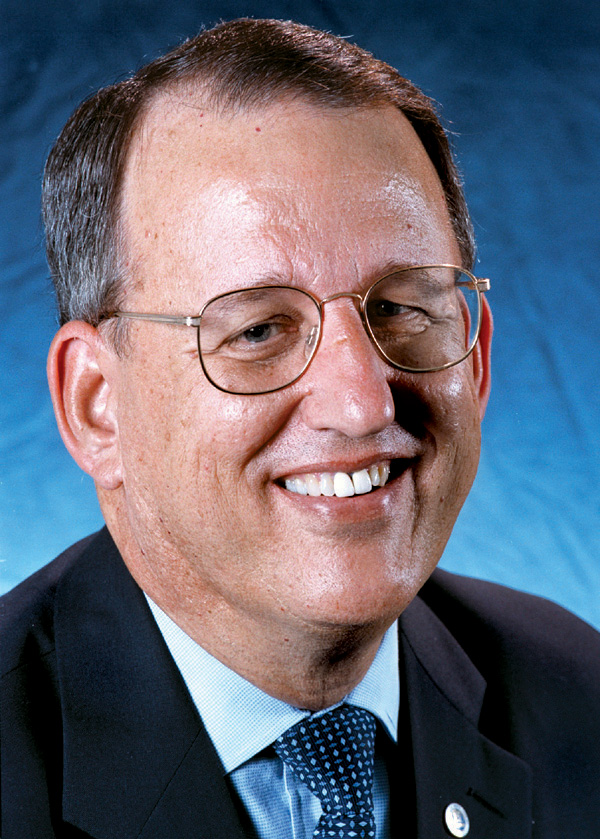- Membership
- Perks and Discounts
- Things To Do
- Resources
- News
- About
- Shop
Related Content
Respectfully Listening and Hearing
March 21, 2023
The Review asked GAA president Doug Dibbert ’70, who is retiring, to choose one “Yours...
Read MoreA Year of Transitions
Feb. 1, 2023
Carolina alumni and friends should remain proud of Carolina’s achievements, resolute about our challenges, saddened...
Read MoreIt’s Time — Thank You
Nov. 11, 2022
Several months ago, then-GAA-Board Chair Dana Simpson ’96 (’00 JD) and I discussed what may...
Read More-
2024
-
2023
-
2022
-
2021
-
2020
-
2019
-
2018
-
2017
-
2016
-
2015
-
2014
-
2013
-
2012
-
2011
-
2010
-
2009
-
2008
-
2007
-
2006
-
2005
-
2004
- Academics and Athletics
- Admissions
- Alumni Profiles
- Alumni Recognition
- Around Town
- Arts
- Books
- Campus Profile
- Campus Safety
- Carolina Alumni Awards
- Carolina Alumni Leadership
- Carolina Alumni Programs and Outreach
- Carolina Alumni Reunions
- Carolina Alumni Review
- Celebrations
- Championships
- College and Costs
- Commencement
- Coronavirus
- Discovery
- Extracurricular
- Faculty
- Faculty Awards
- For the People
- Go Heels
- Greek Life
- Hark the Sounds
- Higher Education
- Homecoming
- In Class
- In Memoriam
- Innovation and Technology
- Issues
- Object Lesson
- On View
- Our Treescape
- Philanthropy
- Podcast
- Public Service
- Race and Reckoning
- Research
- Sexual Assault
- Silent Sam
- Sports
- Structures
- Student Achievement
- Students
- Timelines
- Tuition and Financial Aid
- UNC Libraries
- UNC’s History
- Undergraduate Spotlight
- University Achievements
- University Awards
- University Budget Issues
- University Development
- University Leadership
- University News
- University Rankings
- What We Do
- Who We Are
- Young Alumni
- Yours at Carolina
The GAA Hears You
Posted on Sept. 15, 2013“UNC alumni are more likely than alumni from all of the peer institutions (including California-Berkeley, Michigan, Virginia, Stanford, Penn State, California-Davis, Colorado, Minnesota, South Florida and Wake Forest) to feel an emotional connection to the University — 87 percent, compared to figures that range from 58 percent to 86 percent.”
This was among the findings of a random sample of 2,347 undergraduate Carolina degree holders in the classes of 1960 to 2011 conducted last spring for the GAA by Jerold Pearson, an independent consultant with eAdvancement in Palo Alto, Calif. The response rate of 24 percent, Pearson said, was “among the highest we have obtained in surveys conducted in recent years with alumni from public universities.”
- Almost all alumni — 96 percent — are satisfied overall with the experience they had as an undergraduate at UNC.
- Almost nine out of 10 (87 percent) have positive overall feelings about UNC today.
- When asked how likely they would be, on a scale of zero to 10, to recommend UNC to a prospective undergraduate of their own interests and background, 73 percent of alumni rate their likelihood with a nine or 10 (those can be called “promoters”), 18 percent rate it with a seven or an eight (and can be called “passives”), and just 9 percent rate it lower than seven (and can be called “detractors”). UNC’s “net promoter score” — promoters minus detractors — is 64 percent.
The net promoter score is believed to be a good indicator of brand loyalty, customer satisfaction and growth. Fred Reichheld, formerly with Bain & Co., in his book The Ultimate Question reports that the net promoter score of more than 400 companies in 28 industries was just 16 percent, and the most enthusiastic customer referrals, which included eBay, Amazon and USAA, receive net promoter scores of 75 percent to more than 80 percent.
- UNC’s net promoter score of 64 percent is higher than that of most of the peer universities, whose scores range from 9 percent to 67 percent.
- Almost all alumni (97 percent) take pride in their UNC degree.
- More than eight out of 10 feel an emotional connection to UNC (87 percent), UNC is part of who they are (85 percent), UNC values its alumni (85 percent) and a lifelong relationship with UNC is worth maintaining (82 percent).
- On the other hand, only about six out of 10 alumni feel they have a stake in UNC’s success and achievement or feel they are still part of the UNC community.
- 83 percent of alumni identify most closely with UNC as a whole — while just 9 percent identify most closely with their department or major and 8 percent with their college or school.
- Almost two-thirds of alumni feel an especially close affinity with Tar Heel athletics, “and no other affinity group tested comes close,” Pearson said. The next-closest affinity is with their graduating class, at 32 percent.
 In addition to the above focus on the University, Pearson surveyed alumni about GAA programs, communications and membership, and those results will help our GAA Board of Directors and staff further enhance our initiatives to better inform and involve all of our more than 291,000 living UNC alumni.
In addition to the above focus on the University, Pearson surveyed alumni about GAA programs, communications and membership, and those results will help our GAA Board of Directors and staff further enhance our initiatives to better inform and involve all of our more than 291,000 living UNC alumni.
Oftentimes, I remind students and former students that all UNC alumni believe we attended Carolina at the most perfect time. These survey results confirm that perspective. It is a source of great comfort to Carolina’s faculty, students, staff and administrators that the University’s alumni remain so remarkably passionate about our alma mater.
Yours at Carolina,

Douglas S. Dibbert ’70
© 2024 Carolina Alumni

